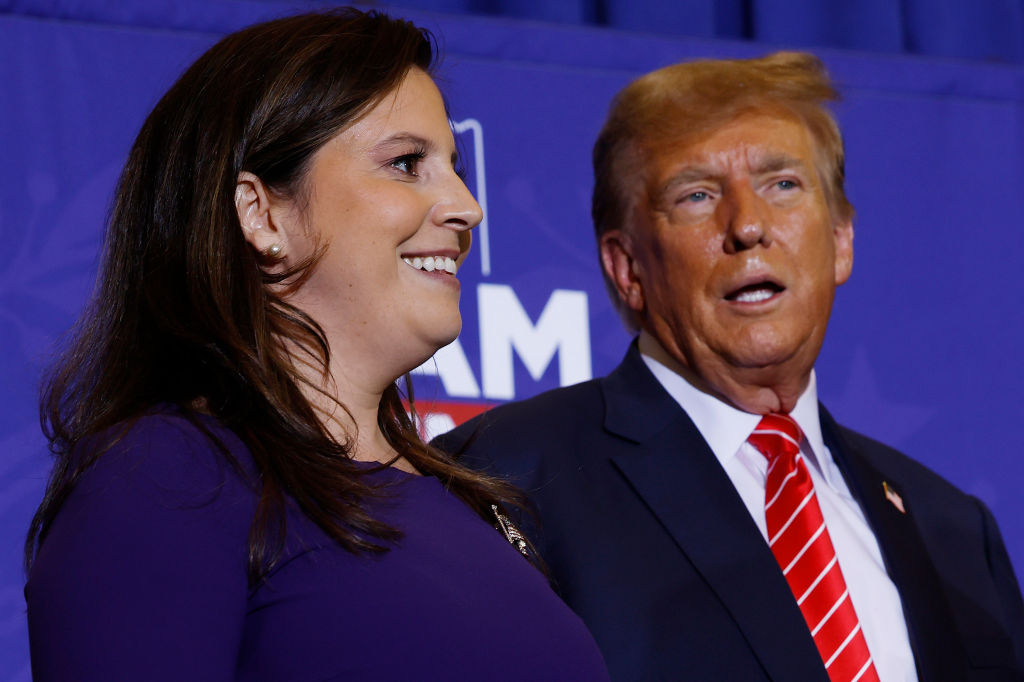The modern political observer has moved on from the idea that “all politics is local.” In our interconnected world, politics now comes down to sophisticated data analytics, nationwide donor networks and money that’s used to drive the narratives that take hold on 24/7 cable news or social media. “All politics is local” is the type of Rockwell-esque trope that wasn’t necessarily true even when the phrase debuted in 1932, let alone when former House speaker Tip O’Neill made it popular. But last year showed us that even old clichés are subject to a gritty reboot.
The seven Democratic justices of the Colorado Supreme Court may have expected anonymity in a nation where most people can’t name a US Supreme Court judge, but Richard Gabriel, Melissa Hart, Monica Márquez and William Hood placed the erstwhile swing state back into the center of the national political conversation when they attempted to strike Donald Trump from the state ballot. Talking heads barely had time to read through the 133-page, 4-3 opinion before Colorado’s time in the spotlight was through. Maine secretary of state Sheena Bellows decided she need not wait for a lawsuit brought by a liberal dark money group to remove the GOP front-runner from the ballot on the grounds that the January 6 riot rendered Trump a Confederate general (here Roger Kimball breaks down the ballot shenanigans). As in Colorado, Democrats hold unanimous control of the Maine Supreme Court, but those seven justices may not have a chance to rule on the matter before the Roberts court weighs in on the matter. Legal observers are eagerly awaiting the leaked draft opinion in Trump v. Anderson to see whether the majority opts to use “lol” to dismiss Colorado’s ruling (see Jesse Singal’s lament on overused text acronyms).
In the past, the disqualification of a major party candidate from the ballot would have been earth-shattering, but Republican primary voters have become accustomed to such developments. The rest of the 2024 hopefuls, from Ron DeSantis and Vivek Ramaswamy to Nikki Haley, issued their statements disavowing Democratic persecution of the man they are attempting to unseat from the top of the polls — a position that has only grown stronger with every indictment and investigation sent his way. Trump may be credited with blowing up conservative fusionism, but #Resistance Democrats have found a way to bring back that tenuous Cold War alliance between libertarians, neocons and social conservatives. The Soviet Union may have folded up shop, but the glue that often united those three strands domestically was hatred of liberal lawfare. The cry of “frivolous lawsuit” and “activist judges” reliably drew the wrath of the right-of-center voter of all stripes in the pre-Trump era. The 2024 primary voter appears equally appalled by the targeting of Trump in courthouses from New York City to Fulton County, Georgia, even as lawlessness pervades major city centers (here Amber Duke profiles a local prosecutor bucking the trend).
The news from Colorado and Maine is not surprising to those who followed the 2020 election cycle when state lawmakers and local bureaucrats invoked emergency powers to radically expand mail-in and early voting to ramp up Democratic turnout. The pandemic may be over, but lawmakers have been busy codifying many of those emergency regulations. The main difference heading into 2024 is that the GOP has been challenging the power grab in statehouses and courts around the country (here Billy McMorris writes on state voting laws). North Carolina Republicans overrode Democratic governor Roy Cooper’s veto to reform the state election board — a measure that unified the GOP in part after the Democrat-controlled board attempted to remove the Green Party from the ballot in 2022.
2024 was always going to be a brawl, but the traditionalists who still abide by the sweet political science must realize that campaigns are no longer a game of wooing voters with public debates, rallies and door knocking. With Trump on the scene, the campaign contest more closely resembles professional wrestling. Biden’s sclerotic jab may not pose much of a threat these days, but between local, state and federal prosecutors, Colorado judges and New England bureaucrats, Trump faces a heretofore unseen mix of fighting styles (for more on the future of the public brawling, see Kevin Cook).
The resurgence of Tip O’Neill’s idea that “all politics is local [prosecutors and bureaucrats]” has left some hoping to resurrect another throwback, namely that of the Bush-Romney Republican. The donor class is betting its billions can propel Nikki Haley to the top. But, as Ben Domenech argues, their last-minute push is about as welcome in our modern Octagon as Hillary Clinton would be with the baying crowds of a UFC arena. For all the public lamentations about a 2020 rematch, primary voters appear poised to send Biden and Trump back into the cage — unless, of course, Democrats succeed in locking the door at the sound of the challenger’s entry music.
This article was originally published in The Spectator’s February 2024 World edition.


























Leave a Reply